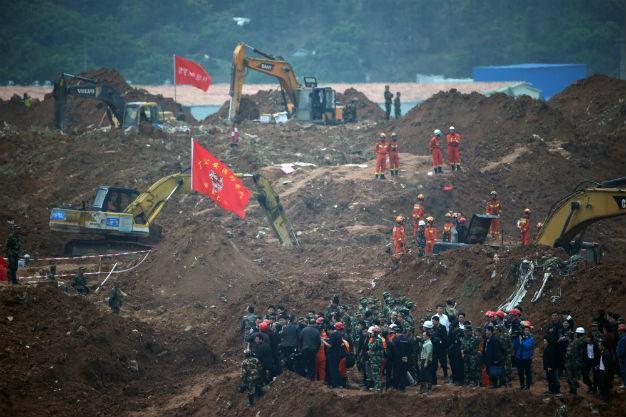Official in China city hit by deadly landslide kills himself
BEIJING - The Associated Press

AP photo
A government official in southern China killed himself a week after a landslide from a huge pile of construction waste in his city left scores missing and presumed dead, police said Dec. 28.
Shenzhen police also said they have placed 12 people, including company executives, under "coercive measures," as part of their investigation into the landslide. The term refers to a form of detention for those suspected of responsibility in a legal matter.
In a separate statement, the Shenzhen police said the head of the Urban Management Bureau in the city's Guangming New District jumped to his death from a building Dec. 27.
The official was identified only by his surname, Xu. No further details were given and it wasn't clear whether Xu had still been in office at the time of his death.
In the Dec. 20 disaster, a mountain of construction waste collapsed during heavy rains onto an industrial park in the district, killing one person and leaving 75 missing and presumed dead.
In a rare move, Shenzhen's top officials, including the city's Communist Party chief and its mayor, bowed deeply at a news conference to apologize.
It was not clear if Xu was under investigation over the landslide, although the responsibilities of urban management bureaus usually include regulating businesses and construction sites. Officials have labeled the landslide a man-made disaster, raising the possibility of harsh penalties for those held responsible.
Also on Dec. 27, the owner of a gypsum mine in the eastern province of Shandong, Ma Congbo, drowned after jumping into a well in an apparent suicide during rescue efforts for 17 workers still trapped two days after the mine collapsed and killed one person.
Despite the threat of prison time over major industrial accidents, a lack of regulatory oversight and cost-cutting by management often lead to deadly disasters.
